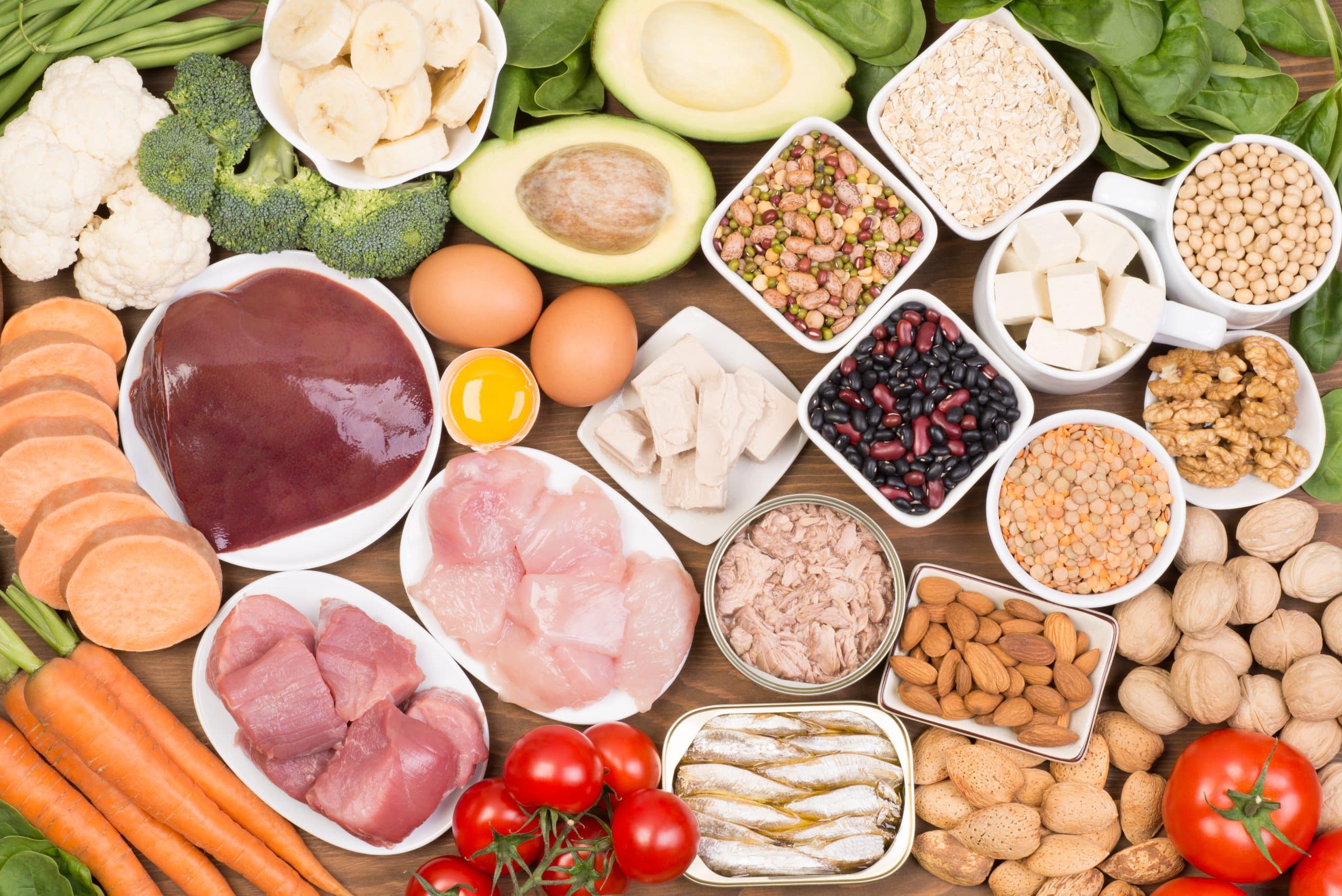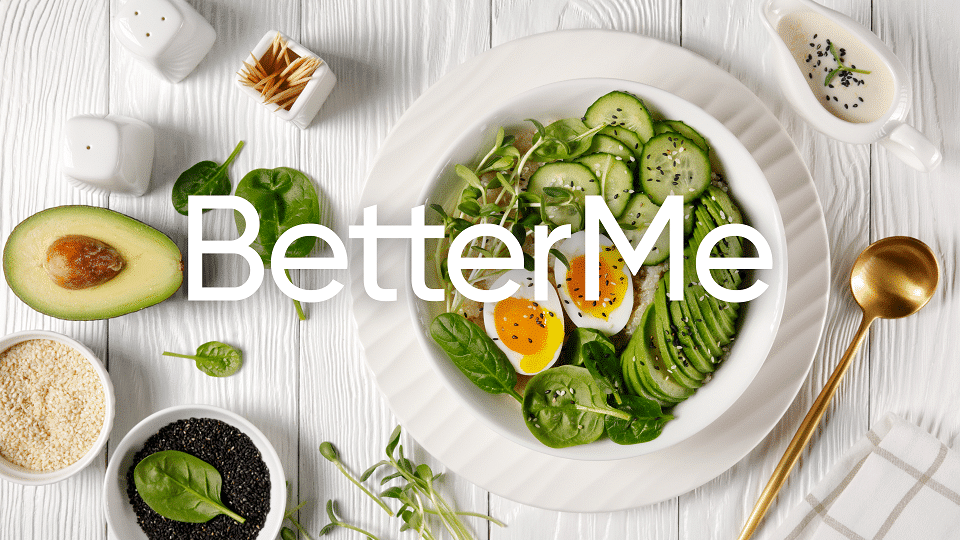Also known as hepatic steatosis, fatty liver disease is a relatively common illness mostly caused by a buildup of fat in the liver – a build up of anywhere between five to 10 percent of the weight of the liver. Essential for both liver and brain function, choline is a nutrient that may help protect against non alcoholic fatty liver disease for many. If you would like to understand how to use choline for fatty liver disease prevention, its benefits for the liver, the best choline for fatty liver, and much more, keep reading.
Get your personalized
meal plan!
What Is Choline?
This is an essential nutrient that was only recognized as such by the Institute of Medicine, less than 25 years ago in 1998. In humans, this nutrient is produced in the liver as phosphatidylcholine. However, we do not produce enough of it to meet our needs and thus we need to supplement this production through our diet.
Food sources of choline include (8):
- Animal protein sources like meat, poultry, fish.
- Healthy fats sources like milk, eggs, nuts, seeds, and dairy products
- Vegetables such as spinach, beets, and cauliflower
- Some types of beans and whole grains
What Are The Benefits Of Choline In The Body?
Some benefits of this essential nutrient include (9, 6, 1):
- Supports brain function and memory
- Acts as a neurotransmitter
- Supports brain development of fetuses in the womb
- Is involved in many reactions which support many different structures and functions within the body
How about choline benefits for the liver? How does this essential nutrient positively affect this organ?
The biggest benefit of choline for the liver is that it helps remove fat from the liver which in turn may help prevent non alcoholic fatty liver disease (NAFLD) and liver damage (8, 10).
According to the Mayo Clinic, while researchers are still not sure why fat accumulates in the livers of some, they have linked this issue to factors such as high fat levels in the blood, high blood pressure, obesity, and insulin resistance.
People who also suffer from diseases like PCOS, sleep apnea, type 2 diabetes, as well as those with thyroid problems are at a higher risk of NAFLD. On the other hand, liver damage can also be caused by either obesity, hepatitis A or B, and alcohol abuse.
Read More: Signs Of Nutrient Deficiency: How To Tell If You’re Missing These Important Nutrients
What Are Some Choline Deficiency Symptoms?
Choline deficiency, while very real, is quite rare in healthy persons – mostly because as seen above, our bodies are more than capable of making this nutrient, albeit in small amounts. With that being said, due to different health concerns and lifestyle choices, some people need more choline than others and without supplementing their body’s production of this nutrient they may end up deficient in choline.
According to Draxe some outward signs of this deficiency may include mood swings, constant fatigue, memory problems, sudden issues with understanding and learning things, muscle aches, as well as nerve pain or tingling.
Because these outward signs could be confused with signs and symptoms of other illnesses, here are some factors to watch out for, in case you believe that you have a choline deficiency:
- Muscle Damage – This is often characterized by either pain, swelling, muscle spasms and/or limited ability to move the muscle. In a study published in 2007 by The American Journal of Clinical Nutrition, researchers found that muscle damage was one of the issues that faced the study test subjects (men and postmenopausal women), after being deprived of this nutrient (16).
- Organ Dysfunction – In 2010, a study also published by The American Journal of Clinical Nutrition evaluated the impact of menopause and estrogen supplementation on organ dysfunction induced by a choline-deficient diet (11). They concluded that menopause increases the choline requirements in the diets of women becasue of lower estrogen concentrations.
- Liver Damage – Also classified under organ dysfunction, it is a condition that can develop when one does not produce or consume enough choline (16).
- Non-alcoholic Fatty Liver Disease – A condition where fat accumulates in the liver of a person who drinks little to no alcohol (7).
Some other adverse effects that might be brought about by lacking enough of this nutrient in your diet may include neural tube defects in fetuses (3, 15).
BetterMe app will kick you out of the mental funk, shake off your extra weight, rid you off your energy-zapping habits, and help you sculpt the body of your dreams. Intrigued? Hurry up and change your life for the better!
Who Is At A High Risk Of Choline Deficiency?
As stated above, while this deficiency is rare, it still exists and some groups of people are more susceptible to it than others. Some of these factors – as well as in groups of people with a higher likelihood of this insufficiency include (6)
- Sex – Studies done on both human beings and lab rats show that men and – specifically – postmenopausal women have higher choline requirements and may be at a higher risk of a choline deficiency. Researchers theorize that this risk is increased due to lower levels of the hormone estrogen t (11).
- Pregnant and lactating women – Researchers believe that choline requirements are increased for pregnant women because the fetus needs it for brain development and maintenance of homocysteine concentrations during pregnancy – and is getting it straight from the mothers body through the placenta and amniotic fluid. Once the child is born and lactation begins, the choline is still transferred from the mother’s body to the child through her breast milk.
- Ethnic and racial background – In a study done on European, Mexican, and Asian Americans and and in individuals of African descent, researchers found that the subjects had different genetic variants that affected choline requirements.
They also theorized that the dietary requirement for choline may be different across racial and ethnic groups. Furthermore they concluded that individuals of European ancestry had a higher prevalence of four single nucleotide polymorphisms that increased the risk of organ dysfunction when these individuals consumed a low-choline diet (14, 2).
- Heavy drinkers – An older study done on lab rats showed that a high alcohol intake leads to an increase in the choline requirement, which could be dangerous if your intake of this nutrient from external sources is already low (17).
- Patients requiring total parenteral nutrition – Adults and infants who rely solely on intravenous feeding (feeding through the vein), have been recorded – over the long term – to have low plasma choline concentrations which can lead to hepatic abnormalities including a fatty liver (2).
Read More: Barley Tea Benefits, Nutrients, Side Effects, And How To Prepare It
Can Choline Reverse Fatty Liver Disease?
It remains unclear.
Most of the research done on the benefits of choline as well as the relationship between this nutrient and fatty liver disease show that choline may work to help prevent the development and even the progression of this illness (8, 7).
So far the only evidence in this nutrient reversing the effects and progression of any illness can be found in an animal study published in 2002 by The Journal of Nutrition. In the study, researchers found that eating more choline can help reverse choline deficiency-induced liver damage in mice (5).
Can Choline Cause Fatty Liver?
No, it cannot. This nutrient works to prevent fatty liver disease. In fact, research shows that a deficiency of choline is one factor that can lead to fatty liver (7).
How Much Choline Should I Take For Fatty Liver?
As of now, the Food and Nutrition Board has still not established a Recommended Dietary Allowance for choline – the amount of this nutrient that healthy individuals need daily. However, they do offer guidelines and recommendations for an Adequate Intake recommendation.
To anyone that would like to make sure they are getting enough this nutrient, potentially as a preventative measure against liver damage (2)
- Men and women aged 19 years and up are recommended to get 550 mg and 425 mg respectively, daily.
- Pregnant and lactating women from 19 years and up need a higher intake of 450 mg and 550 mg daily, respectively.
If you have fatty liver disease and would like to increase your intake of this essential nutrient, because the recommendation data is unavailable (12), we suggest you seek advice from your doctor.
Does Choline Help Cleanse The Liver?
In a way, yes.
Not only is it used to transport fat from the liver to cells throughout the body, but in doing so, it also helps keep fat from accumulating in this organ which can lead to fatty liver disease.
Lean and toned up body isn’t just a far-fetched fantasy. Check out the BetterMe app and watch it propel your weight loss journey into high gear!
What Is The Best Type Of Choline For Fatty Liver?
The best type of choline is what is naturally made by your body as well as what comes from food sources like meat, eggs, cruciferous vegetables, beans, fish, and poultry. If you are looking to buy supplements, please speak to your doctor and let them recommend one for you.
The Bottom Line
When it comes to using choline for fatty liver, this nutrient is best when utilized as a preventative measure against this illness as it may not work to reverse the illness. Since diagnosis for its deficiency could prove complicated, it is best to always supplement your diet with choline rich foods. Vegans and vegetarians that do not consume meat and eggs should speak to their doctors about possible choline supplementation.
DISCLAIMER:
This article is intended for general informational purposes only and does not serve to address individual circumstances. It is not a substitute for professional advice or help and should not be relied on for making any kind of decision-making. Any action taken as a direct or indirect result of the information in this article is entirely at your own risk and is your sole responsibility.
BetterMe, its content staff, and its medical advisors accept no responsibility for inaccuracies, errors, misstatements, inconsistencies, or omissions and specifically disclaim any liability, loss or risk, personal, professional or otherwise, which may be incurred as a consequence, directly or indirectly, of the use and/or application of any content.
You should always seek the advice of your physician or other qualified health provider with any questions you may have regarding a medical condition or your specific situation. Never disregard professional medical advice or delay seeking it because of BetterMe content. If you suspect or think you may have a medical emergency, call your doctor.
SOURCES:
- Anterior cingulate cortex choline levels in female adolescents with unipolar versus bipolar depression: a potential new tool for diagnosis (2014, pubmed.ncbi.nlm.nih.gov)
- Choline (2022, ods.od.nih.gov)
- Choline and risk of neural tube defects in a folate-fortified population (2009, pubmed.ncbi.nlm.nih.gov)
- Choline as a prevention for Alzheimer’s disease (2020, ncbi.nlm.nih.gov)
- Choline Deficiency–Induced Liver Damage Is Reversible in Pemt−/− Mice (2002, academic.oup.com)
- Choline Dietary Requirements and Role in Brain Development (2007, ncbi.nlm.nih.gov)
- Choline Metabolism Provides Novel Insights into Non-alcoholic Fatty Liver Disease and its Progression (2013, ncbi.nlm.nih.gov)
- Choline, Its Potential Role in Nonalcoholic Fatty Liver Disease, and the Case for Human and Bacterial Genes (2016, ncbi.nlm.nih.gov)
- Choline: An Essential Nutrient for Public Health (2009, ncbi.nlm.nih.gov)
- Choline’s role in maintaining liver function: new evidence for epigenetic mechanisms (2014, ncbi.nlm.nih.gov)
- Dietary choline requirements of women: effects of estrogen and genetic variation (2010, pubmed.ncbi.nlm.nih.gov)
- Dietary Reference Intakes for Thiamin, Riboflavin, Niacin, Vitamin B6, Folate, Vitamin B12, Pantothenic Acid, Biotin, and Choline. (n.d., ncbi.nlm.nih.gov)
- Essential nutrient may help fight Alzheimer’s across generations (2019, sciencedaily.com)
- Identification of new genetic polymorphisms that alter the dietary requirement for choline and vary in their distribution across ethnic and racial groups (2014, pubmed.ncbi.nlm.nih.gov)
- Low choline levels in pregnant women raise babies’ risk for brain and spinal-cord defects, study shows (2009, med.stanford.edu)
- Sex and menopausal status influence human dietary requirements for the nutrient choline (2007, pubmed.ncbi.nlm.nih.gov)
- THE EFFECT OF ALCOHOL ON THE CHOLINE REQUIREMENT (1954, ncbi.nlm.nih.gov)











